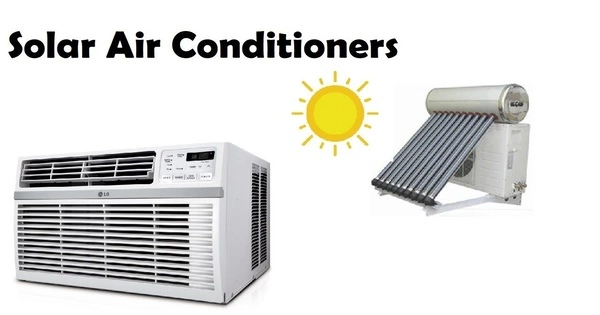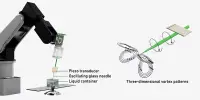Solar air conditioning (or “solar-powered air conditioning”) refers to any air conditioning (cooling) system that uses solar power. The use of solar energy to power air conditioning systems is referred to as solar air conditioning. Traditional air conditioning systems use a lot of electricity, which adds to the high energy costs and environmental impact. Solar air conditioning provides an alternative by cooling indoor spaces with renewable solar energy.
Passive solar design, solar thermal energy conversion, and photovoltaic conversion (sunlight to electricity) can all be used to accomplish this. The United States Energy Independence and Security Act of 2007 authorized funding for a new solar air conditioning research and development program from 2008 to 2012, with the goal of developing and demonstrating multiple new technological innovations and mass production economies of scale.
There are two primary types of solar air conditioning systems:
- Solar-Powered Air Conditioners: Solar panels are used to directly power the air conditioning unit in these systems. Solar panels convert sunlight into electricity, which powers the air conditioner. The electricity generated can also be stored in batteries for later use, ensuring continuous operation even during cloudy or nighttime conditions.
- Absorption Chillers: Another type of solar air conditioning system is the absorption chillers. They cool the air by using heat energy from solar collectors or solar thermal panels to power a refrigeration cycle. Absorption chillers are most commonly used in commercial buildings, but they can also be used in residential settings.
Benefits of Solar Air Conditioning:
- Energy Efficiency: Solar air conditioning systems reduce dependence on grid electricity, resulting in lower energy consumption and utility bills.
- Renewable Energy Source: Solar power is a clean and renewable energy source, reducing greenhouse gas emissions and environmental impact.
- Cost Savings: Over time, solar air conditioning can lead to significant cost savings, especially in regions with high electricity rates.
- Remote Applications: Solar air conditioning is useful in off-grid or remote locations where access to electricity may be limited or costly.
- Long-Term Investment: Installing solar air conditioning can increase the value of a property and provide a long-term return on investment.
Challenges of Solar Air Conditioning:
- Initial Cost: When compared to conventional air conditioning units, the initial cost of purchasing and installing solar air conditioning systems can be higher. Long-term savings and benefits, on the other hand, may outweigh the initial investment.
- Space Requirements: Solar panels necessitate adequate installation space, either on rooftops or in open areas with good sun exposure. This may be difficult for properties with limited space.
- Weather Dependency: Solar air conditioning systems rely on sunlight, which can reduce their efficiency during cloudy or rainy weather. Battery storage systems, on the other hand, can help mitigate this issue by storing energy for continuous operation.
















